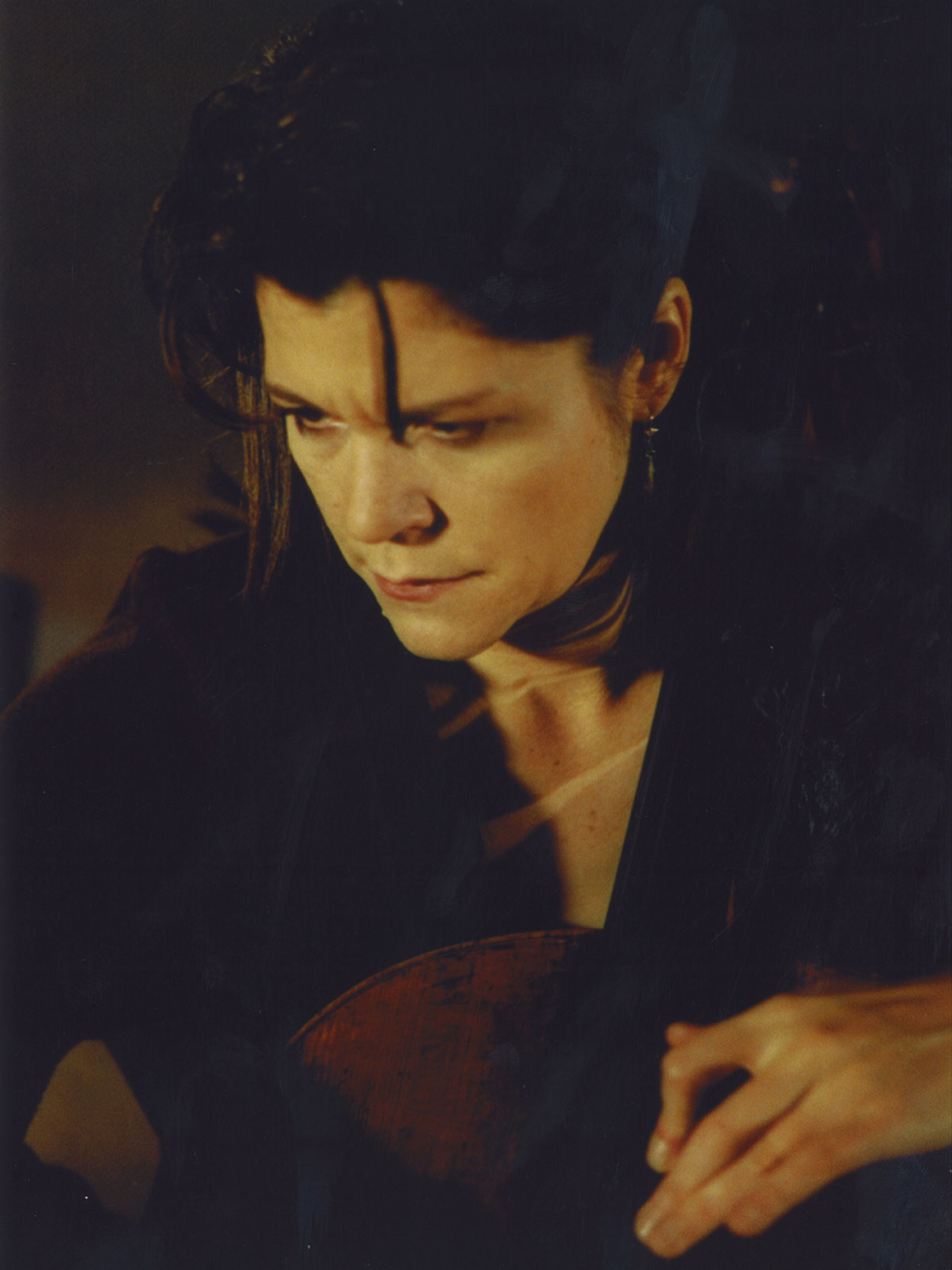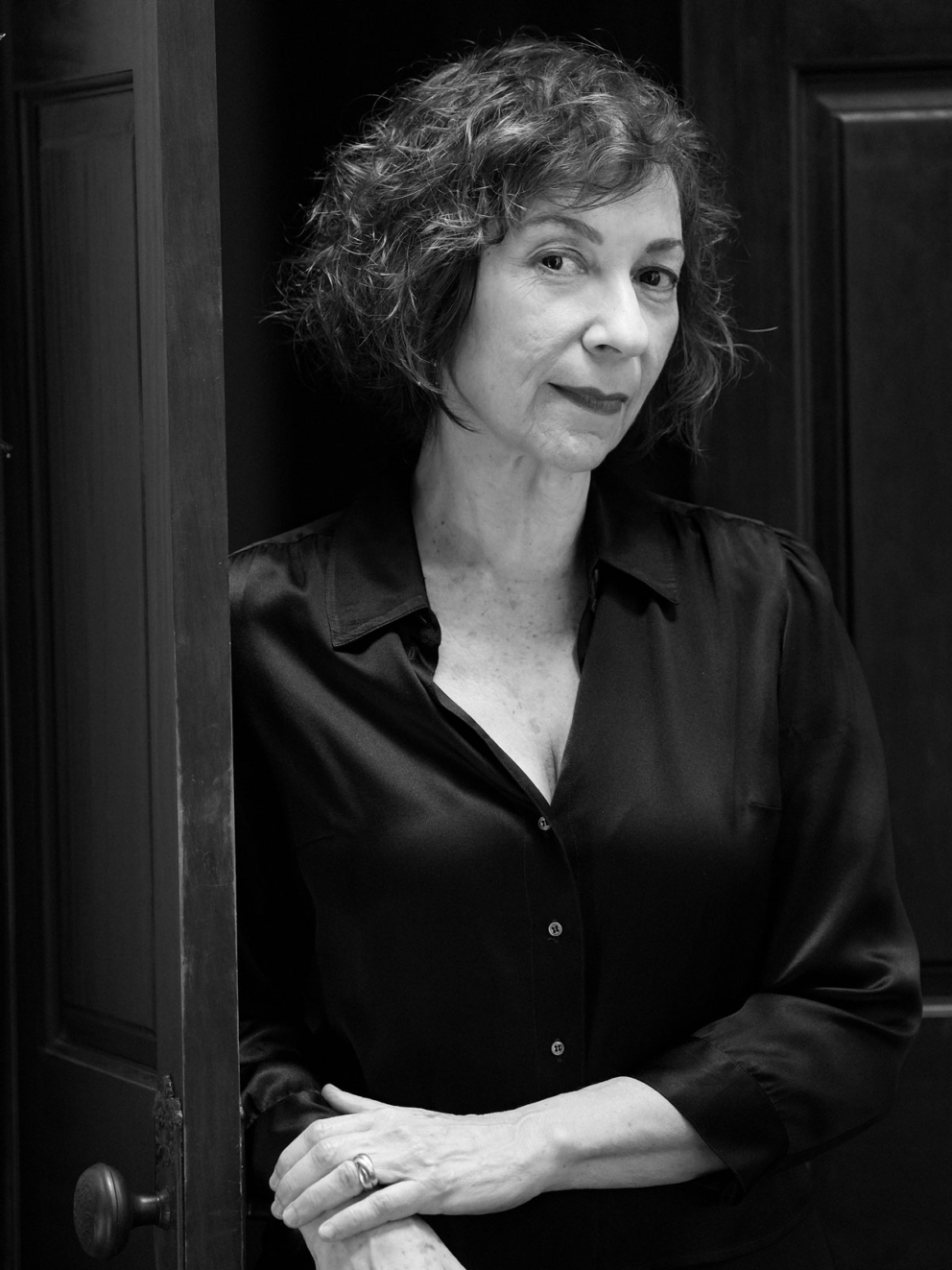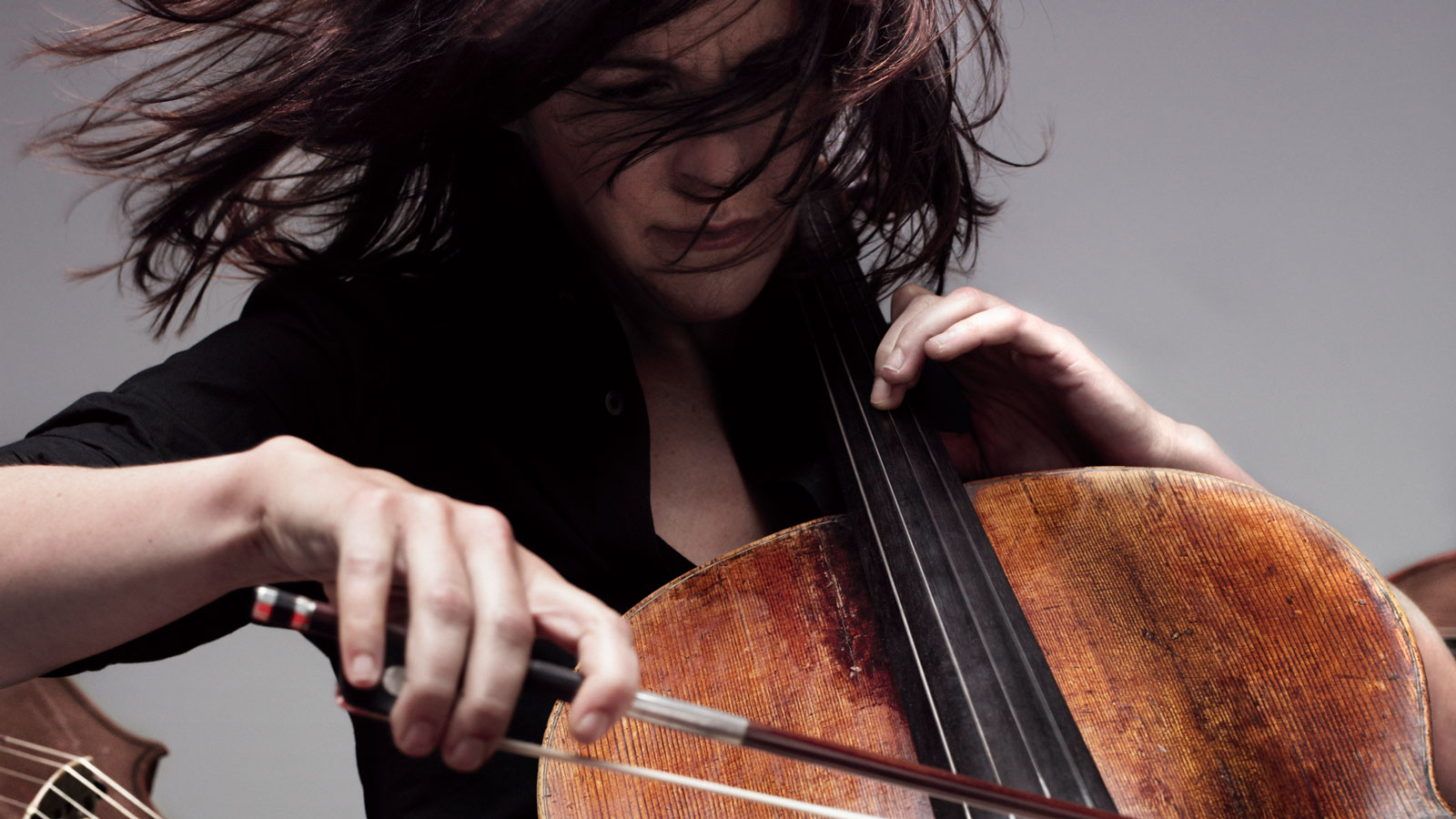Sonia Wieder-Atherton
D’Est en Musique
Event Slider
Date
- / Cancelled / Sold out
Location
Grand Auditorium Calouste Gulbenkian FoundationPricing
25% – Under 30
10% – Over 65
Cartão Gulbenkian:
50% – Under 30
15% – Over 65
- Cello
- Piano
-

Sonia Wieder-Atherton
Cello
In music, Sonia Wieder-Atherton seeks a language that speaks to the world. Her quest has taken her on a journey across repertories, from one discovery to another. Constantly exploring crisscrossing musical avenues, she moves boundaries and unravels the received wisdom in a relentless pursuit of meaning.
FINDING A VOICE
She was born in San Francisco of a mother of Romanian origin and an American father. She grew up in New York and then Paris, where she soon enrolled at the Conservatoire National Supérieur, studying with Maurice Gendron. At 19 she crossed the Iron Curtain to live in Moscow, where she studied with Natalia Shakhovskaya at the Tchaikovsky Conservatory. Her years there brought her a top-class education and left her a special, abiding relationship with time and history. Back in France, at 25, she won the Rostropovich Competition.
TAKING TODAY’S MUSIC TO THE STAGE
Sonia Wieder-Atherton works has developed an especially close relationship with a wide range of contemporary composers (Betsy Jolas, Pascal Dusapin, Georges Aperghis, Francesco Filidei, Georges Aperghis, Wolfgang Rihm, Bernard Foccroule, and Edith Canat de Chizy. She performs as a soloist under the guidance of numerous conductors, notably with: the Paris Orchestra, the French National Orchestra, the Belgian National Orchestra, the Liège Philharmonic, the Israel Philharmonia, the Gulbenkian Orchestra in Lisbon, the Philharmonic Orchestra of Luxembourg, the NDR Orchestra in Hanover, the REMIX Ensemble, Les Siècles, Asko/ Schönberg… and regularly performs chamber music with artists like Imogen Cooper, Elisabeth Leonskaïa, Raphaël Oleg, Alexander Paley, Bruno Fontaine and many others.
A MUSICAL WORLD
Jewish songs, a cycle for cello and piano inspired by the art of the Hazzan. Songs of Slavic Lands, for cello and instrumental ensemble, conceived as a journey from Russia to Central Europe; Vita, for cello solo and three cellos, in which she tells the story of Angioletta-Angel via two timeless geniuses, Monteverdi and Scelsi. Odyssey for Cello and Imaginary Choir, in which a woman, alone with her cello, accompanied by a soundtrack, faces the elements: wind, waves, chaos, storms. Cadenza, or the dreams of Luigi Boccherini, Little Girl Blue, a letter to Nina Simone.
CREATING FOR THE STAGE
Sonia Wieder-Atherton’s musical worlds use many materials and voices. She has been the instigator of many projects that she designs and stages: From the East in Music, a show designed with footage from Chantal Akerman’s film D’Est. Night Dances, with Charlotte Rampling, confronting works by Benjamin Britten and Sylvia Plath. Shakespeare Bach, with Charlotte Rampling, based on sonnets by Shakespeare, Bach and Monteverdi. Marguerite Duras’ Navire Night with Fanny Ardant. Exile, a creation for cello, piano and eight voices. She has also worked with dancer Shantala Shivalingappa, translator André Markowicz, and the late French pop singer Jacques Higelin.
In 2020, Sonia Wieder-Atherton signed an editorial partnership with the Alpha Classics label. In 2011, she received the Bernheim Foundation Award. In 2015, she was named Chevalier de l’Ordre des Arts et des Lettres. Sonia Wieder-Atherton performed at the 2018 ceremonial reburial of Simone Veil in the Pantheon, Paris. -

Sarah Rothenberg
Piano
Committed to creating new audiences for classical music and jazz, and a firm believer in the accessibility of great music of all genres, pianist Sarah Rothenberg is recognized internationally as a pianist of intensity and expressivity, and as a leader in innovative programming. Described as “a prolific and creative thinker” by The Wall Street Journal, Sarah Rothenberg has a unique career as concert pianist, writer, educator, producer and creator of interdisciplinary performances linking music to literature, visual art and ideas. In 2019, she celebrated her 25th anniversary as artistic director of DACAMERA. Prior to arriving at DACAMERA, Sarah Rothenberg was co-founder and Co-Artistic Director of the Bard Music Festival in New York.
A pianist of “heart, intellect and fabulous technical resources” (Fanfare) and “power and introspection” (The New York Times), she has performed at Kennedy Center (Washington, D.C.), Great Performers at Lincoln Center (New York), Barbican Centre (London), The Concertgebouw (Amsterdam), Palais des Beaux-Arts (Brussels), Gilmore Piano Festival, 92nd Street Y, Baryshnikov Arts Center, Library of Congress, Van Cliburn Foundation, The Getty Museum, Ojai Festival and concert series across the United States. Recent performances include the world premieres of Vijay Iyer’s solo piano work, “For My Father;” written for Rothenberg, and Tyshawn Sorey’s MONOCHROMATIC LIGHT (AFTERLIFE) at Rothko Chapel in Houston and at New York’s Park Avenue Armory in a staging by director Peter Sellars -- a work commissioned by DACAMERA.
Original DACAMERA productions conceived, directed and performed by Sarah Rothenberg include A Proust Sonata, which received its New York premiere to critical acclaim in 2018; In the Garden of Dreams, fin-de-siècle Vienna in music, art, ideas; The Blue Rider: Kandinsky and Music, originally commissioned and produced by Works & Process at The Guggenheim and Columbia University’s Miller Theater; and Chopin in Paris: Epigraph for a Condemned Book (Yale Repertory Theatre, New Haven; University Musical Society, Ann Arbor; Krannert Center for the Performing Arts, Champaign-Urbana). Her film, The Departing Landscape, featuring Morton Feldman’s Palais de Mari, received national attention in its 2020-21 streaming premiere. Sarah Rothenberg’s Music and the Literary Imagination series, created for DACAMERA and inspired by the writings of Proust, Mann, Kafka, Baudelaire, and Akhmatova was presented by Great Performers at Lincoln Center for five consecutive seasons. Moondrunk, a staging of Schoenberg’s Pierrot lunaire, inaugurated Lincoln Center’s New Visions series in 1999. Her lectures and performances on art and music include The Guggenheim Museum, The Jewish Museum (New York), Museum of Fine Arts Houston and The Menil Collection. She appeared as soloist in over 75 performances of choreographer/director Martha Clarke’s Cheri at New York's off-Broadway Signature Theatre, Ravenna Festival, Kennedy Center, and London’s Royal Opera House.
Sarah Rothenberg’s scholarly research has resulted in her U.S. premiere performances and recordings of Fanny Mendelssohn’s Das Jahr (Independent Record Companies Award for Best Solo Classical Recording 1996); Rediscovering the Russian Avant-Garde: Lourié, Mosolov and Roslavetz (GM); and Shadows and Fragments: Piano Works of Brahms and Schoenberg. Additional acclaimed recordings include Messiaen Visions de l’Amen (with Marilyn Nonken), and DACAMERA’s Rothko Chapel: Satie, Cage and Feldman on ECM, as well as works of Wuorinen, Carter, Perle, Picker, Ran, Tower and Tsontakis, in collaboration with the composers. She has performed over 80 world premieres and was a member of the New York contemporary music ensemble, Da Capo Chamber Players.
Under her leadership, DACAMERA has been a three-time winner of Chamber Music America-ASCAP’s Adventurous Programming Award, was awarded the CMAcclaim Award, and received a Special Commendation for Outstanding Programming Concepts from Chamber Music America in 1999. Formerly chair of the music department at Bard College, Sarah Rothenberg has taught at Rice University’s Moody Center for the Arts, been a Senior Fellow at the New School’s Vera List Center for Art and Politics in New York, and visiting artist-in-residence at the Cynthia Woods Mitchell Center for the Arts at University of Houston and Banff Centre for the Arts. She currently teaches in the Graduate Writing Program of Columbia University’s School of the Arts.
Sarah Rothenberg’s writings appear in literary, art and musical publications, including The Musical Quarterly, Brick, Nexus, TriQuarterly, Conjunctions, The Threepenny Review, PN Review (UK), Perspectives in New Music; and the books The Crisis of Criticism (ed. Berger/New Press); Rackstraw Downes: Onsite Paintings (Parrish Art Museum); Cy Twombly: Treatise on the Veil (White/Menil Collection) and the Moody Center’s recent Artists and the Rothko Chapel.
Sarah Rothenberg’s early training was at The Juilliard School with Herbert Stessin. After graduating from The Curtis Institute of Music, where her teachers were Seymour Lipkin and Mieczeslaw Horszowski, she studied the music of Olivier Messiaen in Paris with the composer’s wife, Yvonne Loriod. In 2000 she was awarded the Medal of Chevalier dans l'Ordre des Arts et des Lettres from the French government.
D’Est en Musique
With the screening of images from Chantal Akerman’s film D’Est (1993)
Maurice Ravel
Kaddisch, for cello and piano
Sergei Rachmaninov
Sonata in G minor for Cello and Piano, op. 19 (Largo – Allegro moderato)
Boris Tchaikovsky
Suite for solo Cello in D minor (Aria)
Fryderyk Chopin
Cello Sonata in G minor, op. 65 (Scherzo: Allegro con brio)
Bohuslav Martinů
Cello Sonata n.º 2, H. 286 (Largo)
Leoš Janáček
Moravian folk poetry in songs, for cello solo (transcribed by F. Krawczyk and S. Wieder-Atherton)
Béla Bartók
Romanian Folk Dances, for cello and piano (IV Bucsumí tánc / III Pe loc)
Alfred Schnittke
Sonata for Cello and Piano n.º 1 (Largo-Presto-Largo)
Sergei Prokofiev
Adagio op. 97bis, for cello and piano (from Cinderella)
The images from D’Est, documentary maker Chantal Akerman’s masterpiece, remained with Sonia Wieder-Atherton for a long time. Watching an excerpt of the film, without sound, in the company of a Schnittke sonata, the cellist found herself imagining the music transforming the cars rolling over the snow into ballerinas full of lightness. It was this emotional mediation of the relationship between music and cinema that Wieder-Atherton set out to work on and share with pianist Sarah Rothenberg, developing the captivating project D’Est en Musique.
Credits
Héloïse Evano General director
Quentin Balpe Video director
Produced by Philharmonie de Paris in collaboration with Fondation Chantal Akerman, CINEMATEK and le Jeu de Paume.
Executive Production by Walter Films, with the precious support of Théâtre du Soleil.
Sonia Wieder-Atherton would like to thank Olivier Gluzman - Les Visiteurs du Soir.
Sponsor Gulbenkian Music
The Calouste Gulbenkian Foundation reserves the right to collect and keep records of images, sounds and voice for the diffusion and preservation of the memory of its cultural and artistic activity. For further information, please contact us through the Information Request form.


